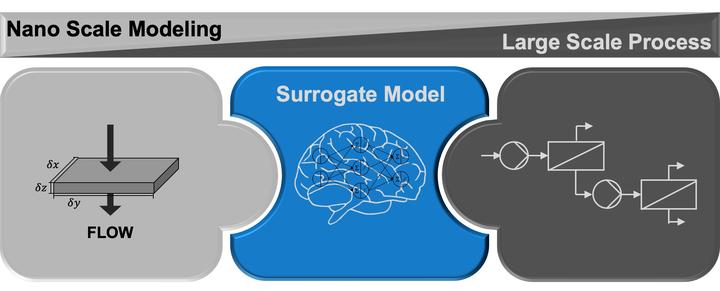Multi-scale membrane process optimization with high-fidelity ion transport models through machine learning

Abstract
Innovative membrane technologies optimally integrated into large separation process plants are essential for economical water treatment and disposal. However, the mass transport through membranes is commonly described by nonlinear differential-algebraic mechanistic models at the nano-scale, while the process and its economics range up to large-scale. Thus, the optimal design of membranes in process plants requires decision making across multiple scales, which is not possible using standard tools. In this work, we embed artificial neural networks (ANNs) as surrogate models in the deterministic global optimization to bridge the gap of scales. This methodology allows for deterministic global optimization of membrane processes with accurate transport models – avoiding the utilization of inaccurate approximations through heuristics or short-cut models. The ANNs are trained based on data generated by a one-dimensional extended Nernst-Planck ion transport model and extended to a more accurate two-dimensional distribution of the membrane module, that captures the filtration-related decreasing retention of salt. We simultaneously design the membrane and plant layout yielding optimal membrane module synthesis properties along with the optimal plant design for multiple objectives, feed concentrations, filtration stages, and salt mixtures. The developed process models and the optimization solver are available open-source, enabling computational resource-efficient multi-scale optimization in membrane science.